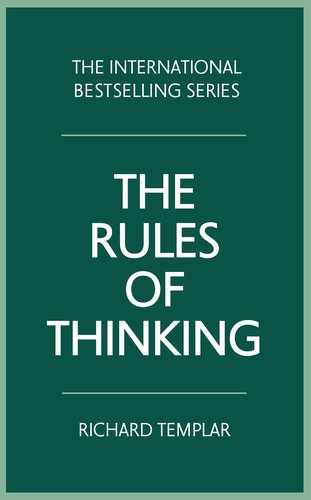I don’t like to bang on about psychological theory (I’m certainly not knocking it – I just like to stay firmly focused on the practical). There is one piece of theory however that you might find helpful. It relates to how you feel when you’re learning a new skill, and says that there are four stages to learning:
- Unconscious incompetence:6 that’s when you don’t even realise that you can’t do a thing. For example, before you start learning to drive you have no idea what’s involved.
- Conscious incompetence: which is when you are aware that you’re not good at it. You start driving and discover you can’t steer properly, or you always brake too slowly, or you keep stalling.
- Conscious competence: you can do it and you know you can. Your test isn’t far off and you revel in all those new skills, like your ability to do an emergency stop or a three-point turn.
- Unconscious competence: you’re so good at it you don’t even notice. You’ve been driving for years and barely have to think about it, it’s so instinctive.
This process applies whether you’re learning to drive, or cook, or program computers. And it also applies to less tangible skills like learning to laugh at yourself, or being self-aware, or more organised.
The reason I’m expounding this bit of theory, despite the long abstract words, is because it’s helpful to be able to think through your own learning process. And the thing you really need to understand is that one of these four stages isn’t very nice. Nope, you won’t enjoy stage 2 – conscious incompetence. No one does.
Conscious incompetence (I’m inclined to rename it ‘you’re-rubbish-and-you-know-it’) is the place where your confidence is shot to pieces, you keep focusing on your mistakes, you think everyone else is better than you, and you may doubt that you’ll ever be able to learn this thing.
And that’s the point at which to remember this Rule. This is normal. It’s part of learning. Whether it’s a new job, being a parent, practising the Rules, playing the violin, or learning to drive. When you start feeling despondent and incompetent, think to yourself, ‘Aha! Rule 26. I’m supposed to feel this way. I’m at you’re-rubbish-and-you-know-it. That’s all right then. I’ll just persevere and before too long I’ll arrive at you’re-good-and-you-know-it, or whatever that other long forgettable term was.’ And after that you’ll be only a stone’s throw from ‘you’re-so-good-you’ve-forgotten-how-good-you-are’ and things will look rosy again. And you’ll have a new skill solidly embedded in your repertoire.
IT’S HELPFUL TO BE ABLE TO THINK THROUGH YOUR OWN LEARNING PROCESS
_________________________
6 Yeah, it’s all those long words. That’s what puts people off theory. Experts need to be as specific as possible, which makes sense, so they use the most accurate words possible to describe things – but most of the rest of us don’t care for the long and abstract ones.
